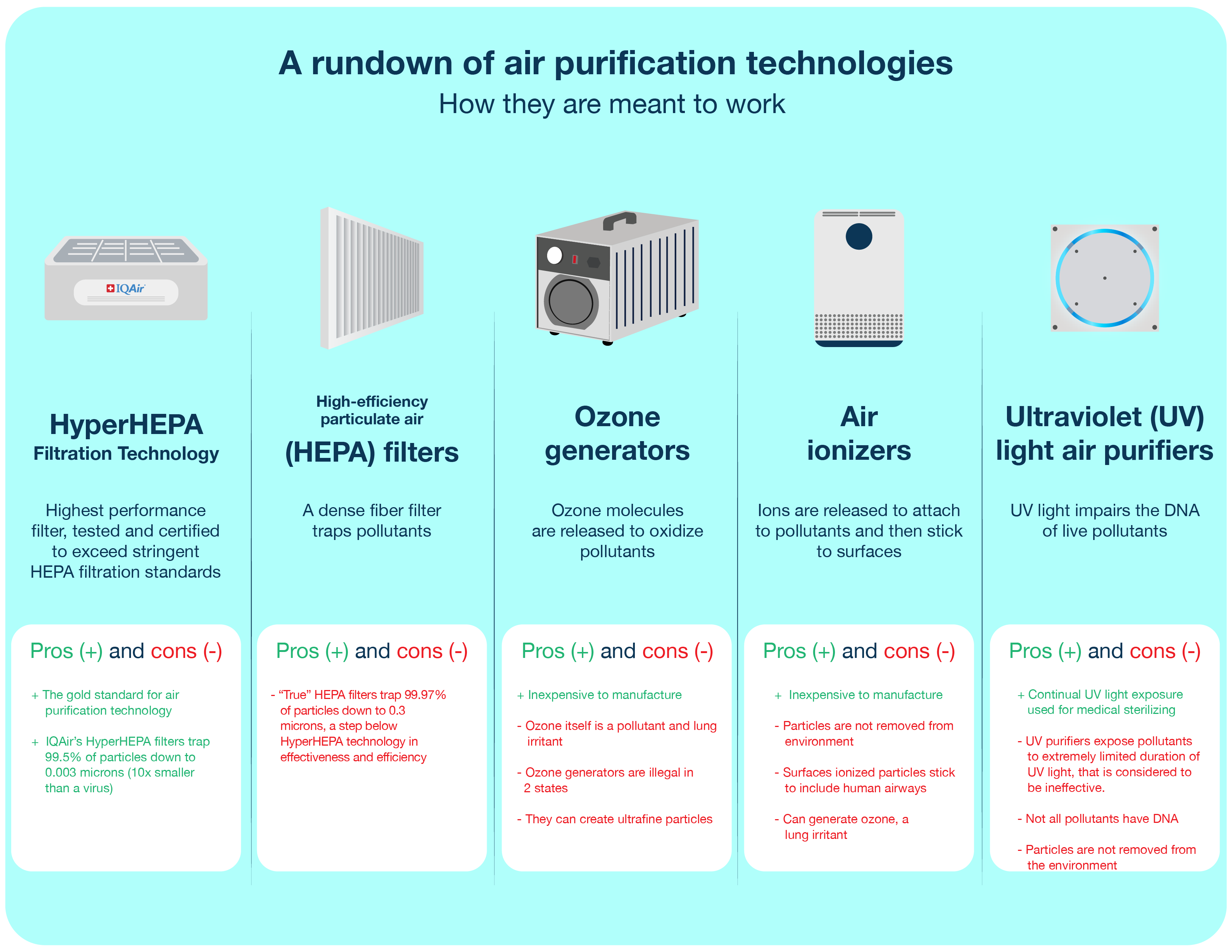If you’re thinking about buying an air purifier, you might be curious about studies or other data that support its effectiveness. The good news is that a lot of research has been done on air purifiers, revealing how successful they are at enhancing indoor air quality. These studies offer useful information that can help you decide whether an air purifier is the correct choice for you, from eliminating pollutants and allergens to lowering the risk of respiratory problems.
I. Introduction
Welcome to the in-depth introduction to air purifiers and how they affect health and air quality! In this post, we’ll delve into the interesting world of air purifiers, examine how they work, and go over the many advantages they provide. We will also review current studies on air purifier effectiveness and offer recommendations for using them in various contexts. You will have a thorough grasp of air purifiers and how they might enhance your general well-being by the time you finish reading this article.
II. Air Quality and Health Impact
A. Understanding Air Quality
Maintaining a healthy lifestyle requires an understanding of the air we breathe. The presence of different compounds, such as pollutants and toxins, in the air we breathe is referred to as air quality. Both naturally occurring and artificially created sources can yield these chemicals. Forest fires and volcanic eruptions are examples of natural sources, whereas industrial emissions, car exhaust, and interior pollution are examples of man-made sources.
B. Health Effects of Poor Air Quality
Our health can be significantly impacted by poor air quality. Inhaling airborne pollutants and toxins can cause a variety of health concerns, from minor discomfort to serious respiratory disorders. Short-term exposure to low-quality air can irritate the eyes, give people headaches, trigger allergic reactions, and make existing respiratory diseases like asthma worse. Long-term exposure to contaminated air can cause more severe health complications, such as lung cancer, cardiovascular disorders, and chronic respiratory ailments.
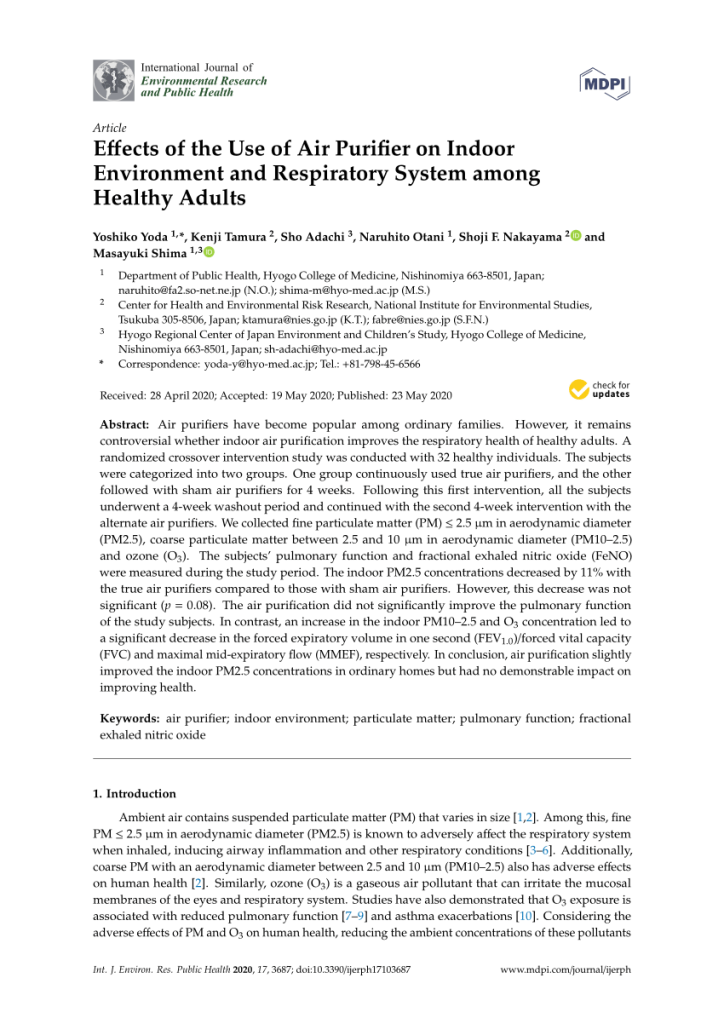

III. Air Purifiers and Their Functions
A. How Air Purifiers Work
By removing impurities and pollutants from the air, air purifiers are tools created to enhance the quality of indoor air. Various mechanisms, depending on the type of purifier, are used to accomplish this. Ionization, oxidation, and filtration are the most widely used processes.
Filtration-based air purifiers function by bringing in air and forcing it through a filter that captures allergens including dust, pollen, and pet dander. On the other side, ionization purifiers use electrically charged ions to attract and remove airborne contaminants. Reactive oxygen species are produced by oxidation purifiers, which neutralize dangerous airborne contaminants.
B. Types of Air Purifiers
There are many different types of air purifiers on the market, each with special characteristics and advantages. The most typical varieties include:
- HEPA (High-Efficiency Particulate Air) Filtration: These purifiers use a dense filter to trap particles as small as 0.3 microns, effectively capturing allergens, dust mites, and even some bacteria and viruses.
- Activated Carbon Filters: These filters specialize in removing odors, smoke, and harmful volatile organic compounds (VOCs) from the air, making them particularly useful for households with smokers or in areas with poor ventilation.
- UV (Ultraviolet) Light Purifiers: These purifiers use UV-C rays to kill bacteria, viruses, and molds, helping to reduce the spread of airborne diseases.
- Ozone Generators: These devices release ozone, which oxidizes and eliminates odors and contaminants in the air. However, it is important to note that excessive ozone exposure can be harmful and should be used with caution.
C. Common Features and Technologies
Many air purifiers have extra components and technology to improve their performance. Air quality sensors that identify pollution levels and modify the purification settings appropriately are one type of typical feature. Others might provide ease and versatility by having timers, remote controls, and different fan speeds. It’s crucial to do your study and pick the air purifier that most closely matches your unique requirements and tastes.
IV. Research on Air Purifier Effectiveness
A. Methodology and Study Designs
Numerous research have been done to determine how well air purifiers work in enhancing health outcomes and indoor air quality. These studies assess the effectiveness of air purifiers in diverse contexts using a variety of methodology and study designs.
When testing the efficiency of air purifiers in lowering exposure to air pollutants, researchers frequently conduct controlled trials in which individuals are exposed to a particular air pollutant. Other studies track changes in respiratory health and general wellbeing over time by continuously measuring the air quality in residences or workplaces.
B. Studies on Air Purifiers in Specific Environments
According to a research that appeared in the Journal of the American Medical Association (JAMA), residences that were exposed to external air pollution saw an average 44% reduction in indoor particle matter when using air purifiers with HEPA filters. As a result of this lowering, children’s asthma symptoms decreased and lung function improved.
Another study carried out in schools revealed that employing air purifiers with HEPA filters led to lower airborne allergen levels, which in turn led to a drop in absence from allergies and asthma.
C. Long-term Use and Health Benefits
Long-term usage of air purifiers may also offer considerable health advantages, according to research. According to a study that was published in the New England Journal of Medicine, those who used air purifiers at home had a 58% lower chance of getting cardiovascular illnesses. Similar to this, a comprehensive analysis of numerous research discovered that air purifiers lower the risk of respiratory illnesses in those that are more susceptible, like the elderly and young children.
D. Limitations and Challenges in Research
Although the available research offers insightful information about the efficacy of air purifiers, it is crucial to recognize the gaps and difficulties in this area. The precise contaminants present, the size of the space, and the efficiency of the purifier are just a few examples of the variables that may affect an air purifier’s performance. Inconsistent results have also been discovered in several studies, underlining the need for additional research and standardization of study methodologies.
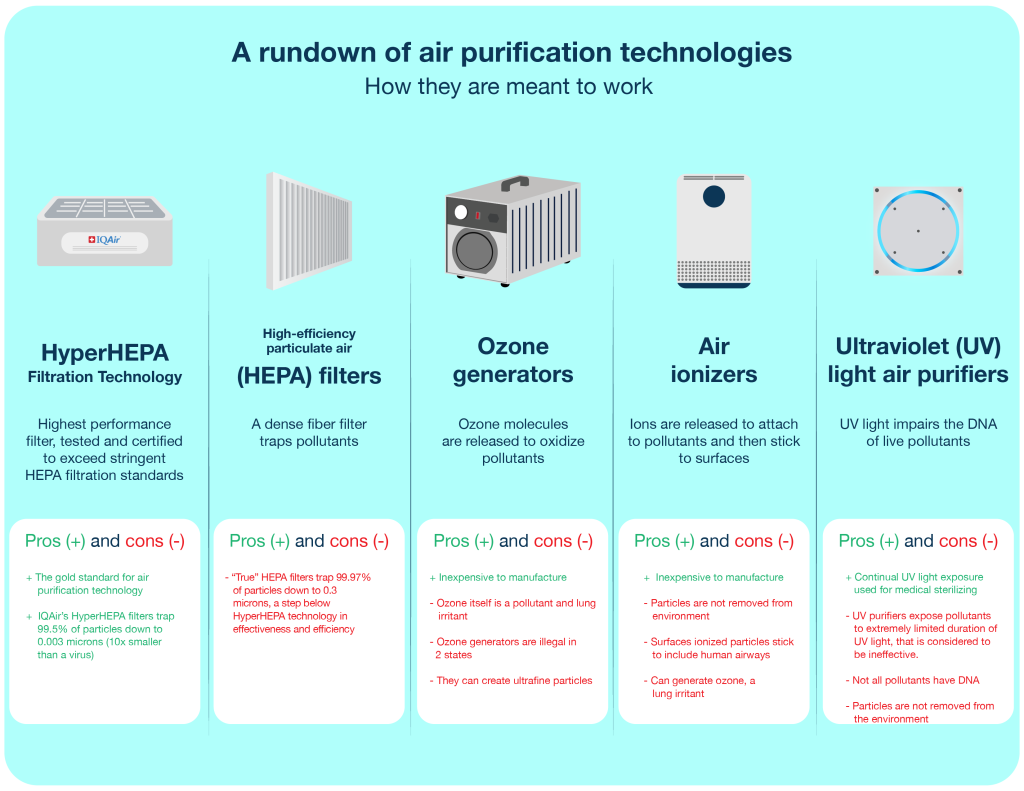
V. Benefits of Air Purifiers
A. Reduction of Allergens and Irritants
The capacity of air purifiers to eliminate allergens and irritations from the air is one of its main advantages. Air purifiers may considerably lessen the amount of allergens in indoor environments by catching and trapping particles including pollen, pet dander, and dust mites. Asthma and allergy sufferers will find this to be very helpful as it helps to reduce symptoms and enhance breathing comfort.
B. Removal of Volatile Organic Compounds (VOCs)
The best air purifiers for eliminating volatile organic compounds (VOCs) from the air are those with activated carbon filters. These substances can cause indoor air pollution and can be found in household goods like paints, furniture, and cleaning supplies. Air purifiers support a healthy living environment by efficiently eliminating VOCs, as well as lowering the risk of respiratory conditions linked to prolonged exposure to these substances.
C. Control of Odors and Smoke
To get rid of aromas and smoke flakes from the air, use air purifiers with activated carbon filters or ozone generators. Air purifiers can help make a home smell fresher and more enjoyable by eliminating unpleasant scents like lingering cigarette smoke, pet odors, or cooking odors. Families with smokers or people who reside in places with poor outdoor air quality can particularly benefit from this.
D. Asthma and Allergy Management
Air purifiers can be quite helpful for treating asthma and allergy symptoms in people. Air purifiers may make a space cleaner and safer by removing airborne triggers like pet dander, pollen, and mold spores. Asthma attacks, allergic responses, and medication usage may decrease as a result, improving overall respiratory health.
E. Improved Sleep and Overall Well-being
For a restful night’s sleep and general wellbeing, clean air is crucial. Pollutants and allergens that might impede breathing and disturb sleep are eliminated by air purifiers. Air purifiers support peaceful sleep, increased energy, and a higher standard of living by guaranteeing a clean and fresh breathing environment.
VI. Air Purifiers in Specific Settings
A. Homes and Residential Spaces
To improve the quality of the air within residential buildings and residences, air purifiers are frequently utilized. For people with allergies, asthma, or respiratory disorders, they are especially helpful. Air purifiers improve the overall health of the home by lowering allergies, irritants, and pollutants.
B. Schools and Educational Institutions
In order to maintain a healthy environment in learning environments, air purifiers can be extremely helpful. According to studies, HEPA air purifiers can enhance air quality and lower allergen levels in classrooms, which reduces absenteeism due to respiratory conditions. Implementing air purifiers in classrooms can improve student and teacher health and academic performance.
C. Office and Commercial Environments
The best productivity and well-being at work depend on a clean and healthy indoor environment. By removing odors, impurities, and airborne pollutants, air purifiers can improve the working environment and lower the risk of respiratory problems. Additionally, air purifiers are especially useful in offices with inadequate ventilation or places where workers could be exposed to occupational dangers.
D. Healthcare Facilities and Hospitals
It is crucial to keep the air in healthcare facilities clean and hygienic. By removing airborne germs, bacteria, and viruses, air purifiers with specialized filters, such HEPA filters and activated carbon filters, can help stop the spread of diseases. In hospitals and other healthcare facilities, installing air purifiers improves patient safety and fosters a healthier environment for both patients and employees.
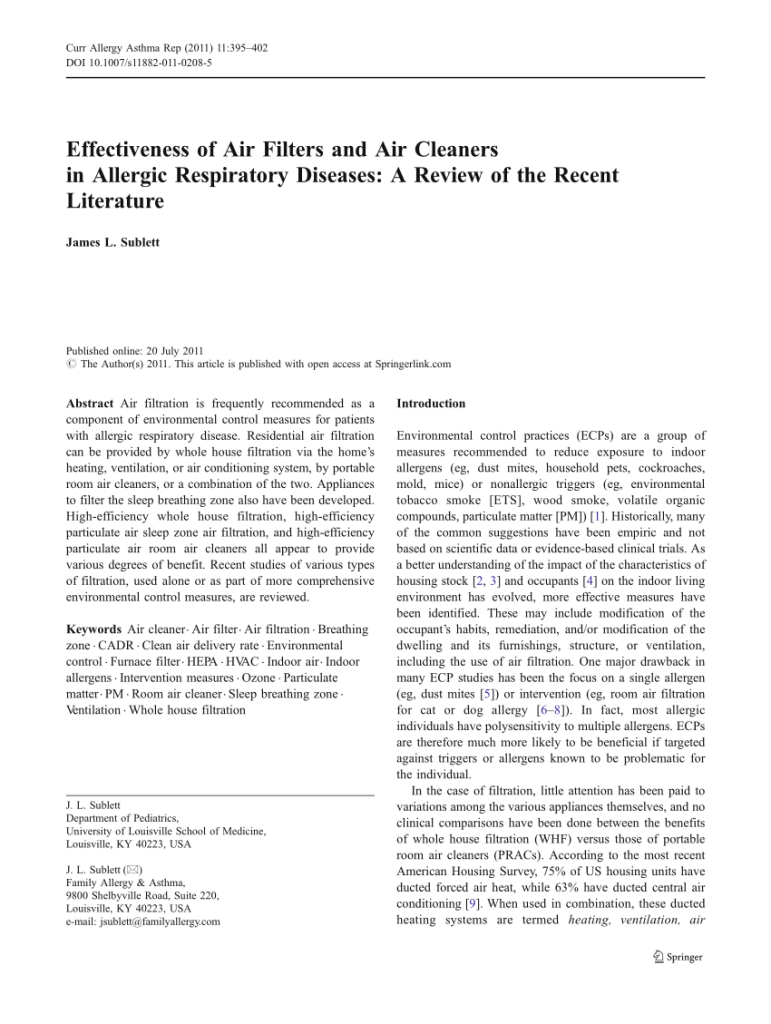
VII. Expert Recommendations and Guidelines
A. Recommendations from Health Organizations
The World Health Organization (WHO) and the American Lung Association are two health organizations that emphasize the value of clean air and offer advice on how to use air purifiers. These groups advise utilizing air purifiers with HEPA filters and keeping them well-maintained for optimum efficiency. They also emphasize the value of ventilation, routine cleaning, and decreasing indoor pollution sources.
B. Guidelines for Choosing and Using Air Purifiers
It is crucial to take into account aspects like the size of the space, the specific air quality concerns, and the necessary features when selecting an air purifier. Health professionals advise choosing a purifier that is appropriate in size for the space and caters to the individual demands of the users. For air purifiers to remain effective, regular maintenance, such as filter replacement and cleaning, is essential.
VIII. Myths and Misconceptions
A. Common Misunderstandings about Air Purifiers
There are several widespread myths and misunderstandings about air purifiers. One such misconception is the idea that air purifiers can entirely remove all toxins and pollutants from the air. Although air purifiers are quite efficient at lowering the amount of pollutants, it’s vital to remember that they cannot completely remove all poisons or pollutants, especially in locations with high levels of pollution.
B. Debunking False Claims and Exaggerations
The idea that air purifiers emit dangerous ozone gas is another myth. While it’s true that some air purifiers, like ozone generators, can create ozone, the majority of contemporary air purifiers are made to generate little to no ozone. It is crucial to pick an air purifier that complies with safety requirements and is ozone-free verified by trustworthy organizations.
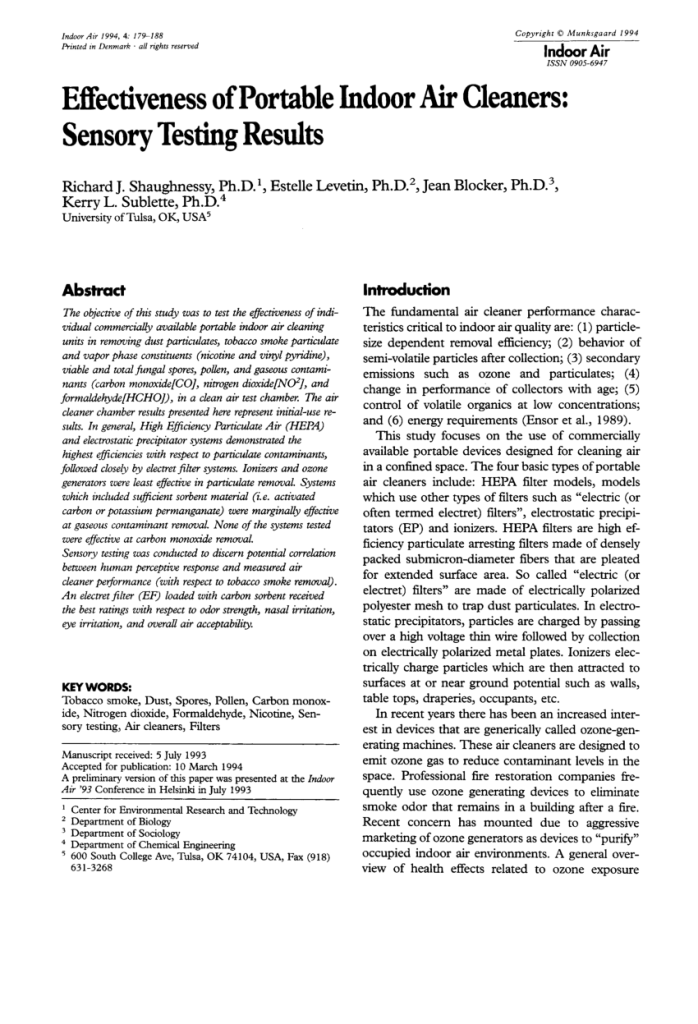
IX. Real-world User Experiences
A. Testimonials and Reviews
Real-world user experiences offer insightful information about the efficacy of air purifiers. After utilizing air purifiers, many people have noted notable changes in their respiratory health, allergy problems, and general well-being. Reviews and testimonials highlight the benefits of air purifiers, especially for people who already have respiratory ailments.
B. Consumer Reports on Air Purifiers
Consumer reviews and evaluations are very important in determining the dependability and efficacy of air purifiers. These studies take into account variables like the effectiveness of air filtration, noise levels, energy usage, and general user happiness. When choosing an air purifier that best meets your needs and requirements, consulting consumer reports can help you make informed judgments.
X. Conclusion
For bettering the quality of the air and encouraging better health, air purifiers are becoming more and more popular. Air purifiers provide a wide range of advantages in a variety of circumstances, from lowering allergies and irritations to eliminating odors and smoke. Air purifiers have demonstrated positive outcomes in strengthening respiratory health, managing allergies, and enhancing general well-being, as supported by studies and user experiences.
Choosing the right kind of air purifier and keeping it in good working order are crucial whether you want one for your house, workplace, or healthcare facility. You may enhance the efficacy of air purifiers and take advantage of the clean, fresh air they give by adhering to professional advice and recommendations. Consider purchasing an air purifier as a health investment to help you breathe more easily and lead a better life.
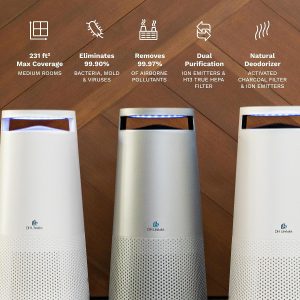
Recommendations: AMEIFU H13 Hepa Air Purifier

